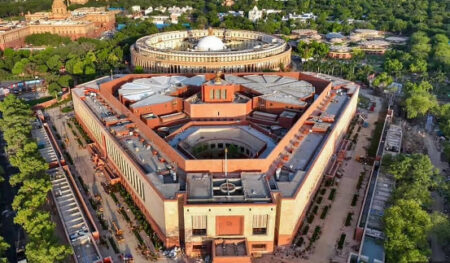Coal reserves at Indian power plants have declined by 17% since the start of April and are barely a third of the required levels. Indian railways have come forward to address this situation by canceling passenger trains and calling it an interim measure. The 600+ trains are canceled till the third week of May. The trains canceled include more than 500 mail and express train trips along with 148 commuter train trips.
Of the canceled trains, 34 are from the coal-rich South East Central Railway (SECR) belonging to the states of Odisha, West Bengal, and Jharkhand, while 8 are from Northern Railways. The absence of trains (especially passengers) will make way for coal carriages as the nation is attempting to replenish it’s depleting the stocks at power plants to avoid a power crunch.
To meet the growing demand Railways have proposed a plan to add a further 100,000 more wagons to its fleet. The ambitious dedicated freight corridor is also expected to be used to deliver goods faster.
Present Coal Crunch
1.62 million tons of coal need to be loaded immediately to get the power sector back on track. Large parts of the country have been experiencing extreme heat since April and scorching heatwaves have just made it worse leading to upscaled power demand in the country and several parts of India are facing 2-8 hours of blackouts which have made life completely miserable.
As per reports by The Hindu, Of the 173 thermal power plants, 85 plants fired by domestic coal have less than 25% stock while 11 plants running on imported coal have hit critical levels. In over 50 thermal plants, the coal stock has gone below the 10% mark, leading to states seeking additional coal supplies from India’s sole coal producer Coal India Ltd (CIL) has ramped up its production by 27.2% in April.
Power shortage in numbers
Since the beginning of April, Jharkhand has been facing the worst shortage in the country which is an average supply shortage of 10-12%, followed by similar scenarios in Andhra Pradesh (10%), Uttarakhand (8-10%), Madhya Pradesh (6%) and Haryana (4%).
The hands of industries are bound as they’re cutting power output with a declining stock of coal. Power shortages in long term will threaten the economy’s revival in post covid era as India is still a country that derives more than 70% of its power from its coal-driven power plants.
The highest demand for Power or the highest supply in a day happened on April 27th at 200.65 GW, while the highest shortage in power was 10.29 GW. The electricity supply has fallen short of demand by 1.88 billion units, or 1.6%, during the first 27 days of April.
The total electricity shortage in the country has hit 623 million units, surpassing the total shortage in March and also of the previous 6 years.
Edited By: Vanshika Sahu
Published By: Raj Kishor













